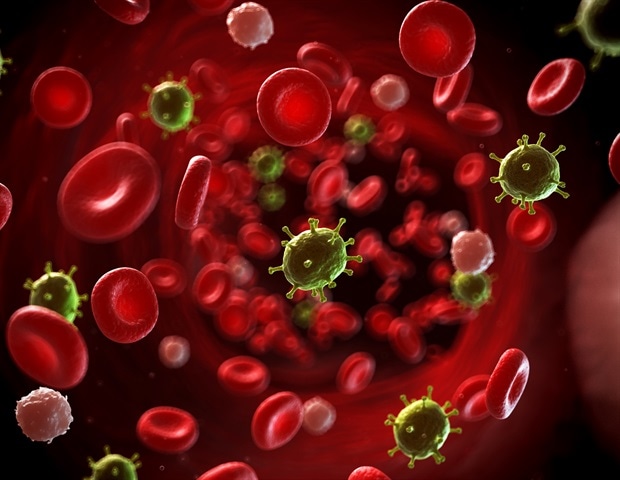Is Waning Immunity to Japanese Encephalitis Making Dengue More Severe?

Published: 2025-09-13 18:27:00 | Category: Uncategorized
This article explores a significant study revealing how waning immunity to the Japanese encephalitis virus (JEV) may heighten the risk of severe dengue disease in humans. Researchers from Duke-NUS Medical School and Nepal discovered that declining immunity from the JEV vaccine can inadvertently worsen dengue symptoms. This highlights the importance of maintaining robust vaccination programmes to protect against both diseases.
Last updated: 27 October 2023 (BST)
Key Takeaways
- Waning immunity to JEV increases the risk of severe dengue disease.
- Antibody-mediated enhancement can exacerbate dengue symptoms.
- Over 500 patients were studied in Nepal to assess the link between JEV vaccination and dengue severity.
- Strong JEV immunity correlates with milder dengue symptoms.
- Climate change and urbanisation are contributing to the rise of mosquito-borne diseases.
Understanding the Connection Between JEV and Dengue
Japanese encephalitis (JE) and dengue are both serious viral diseases transmitted by mosquitoes. JE is particularly dangerous, with a mortality rate of approximately 25% among those who develop severe symptoms. Survivors often face long-term disabilities, making JE a significant public health concern. In contrast, dengue has seen a rapid increase in cases globally, with Nepal experiencing a notable surge in recent years. Currently, dengue is classified as the fastest-growing mosquito-borne viral disease worldwide.
The Role of Vaccination in Preventing Japanese Encephalitis
Vaccination is the primary method for preventing Japanese encephalitis. Countries like Nepal have made substantial progress in immunising their populations through mass vaccination campaigns. The vaccine generates high levels of antibodies that provide effective protection. However, immunity can wane over time, leading to concerns about the need for booster shots to maintain adequate protection levels.
The Study: Methodology and Findings
In a groundbreaking study published in Science Translational Medicine, researchers examined over 500 patients in Nepal over five years. This region is unique as it is one of the few places where both JEV and dengue viruses circulate simultaneously. The research aimed to understand how previous immunity to JEV influences the severity of dengue illness.
Results of the Study
The findings revealed that individuals vaccinated against JEV whose antibody levels had declined were more likely to experience severe symptoms when they contracted dengue. Conversely, those with strong JEV immunity exhibited milder symptoms. This correlation raises important questions about how vaccines for one virus can impact the body's response to another related virus.
Antibody-Mediated Enhancement Explained
One critical concept emerging from the study is antibody-mediated enhancement. This occurs when antibodies generated from a previous infection or vaccination are not sufficiently effective in neutralising a different virus. Instead, these partially effective antibodies can inadvertently assist the dengue virus in entering immune cells, accelerating its replication. This process triggers a stronger immune response, leading to increased inflammation and more severe dengue symptoms.
Measuring the Severity of Dengue
The researchers assessed the severity of dengue by measuring chymase levels—a blood marker associated with inflammation and severe disease. Results indicated that patients with moderate levels of JEV antibodies exhibited significantly higher chymase levels. These individuals were also more likely to show critical signs of severe dengue, such as bleeding, abdominal pain, and fluid leakage into surrounding tissues.
Implications for Public Health
The implications of this research are particularly significant for countries like Nepal, where both JEV and dengue are prevalent. Associate Professor Ashley St John, one of the study’s lead authors, emphasised the necessity of maintaining strong immunity against JEV through timely booster shots. This could not only prevent Japanese encephalitis but also mitigate the risk of severe dengue cases.
Recommendations for Vaccination Strategies
To combat the rising threat of both diseases, it is crucial to strengthen vaccination programmes for Japanese encephalitis. This includes ensuring that individuals develop and maintain robust immunity through regular booster shots. Such strategies could significantly reduce the severity of dengue and enhance overall public health outcomes in regions where both viruses circulate.
The Impact of Climate Change on Mosquito-Borne Diseases
Climate change and urbanisation are increasingly affecting the spread of mosquito-borne diseases. In Nepal, the rapid rise in dengue cases over the past decade can be attributed to changing weather patterns and expanding mosquito habitats. Areas previously unaffected by dengue are now seeing outbreaks, necessitating a more proactive approach to disease prevention.
Future Research Directions
The research team plans to continue monitoring the evolution of dengue in Nepal, particularly as new virus strains emerge and the immune landscape of the population becomes more complex. They are also collaborating with partners to develop effective vaccination strategies aimed at protecting communities from dengue and related viral infections.
Conclusion: The Need for Integrated Disease Control
As public health challenges continue to evolve, understanding the interplay between different viral diseases becomes vital. The findings from this study underscore the importance of integrated vaccination strategies to protect populations from both Japanese encephalitis and dengue. Maintaining strong vaccine coverage and introducing timely boosters could be crucial not only for preventing JE but also for reducing the severity of dengue cases across affected regions.
The complexities of viral interactions and immunity necessitate ongoing research and proactive strategies to safeguard public health. How can we enhance our vaccination programmes to better protect against these emerging threats? #PublicHealth #Vaccination #MosquitoBorneDiseases
FAQs
What is Japanese encephalitis?
Japanese encephalitis is a viral infection transmitted by mosquitoes, causing severe neurological illness and a high mortality rate among those who develop severe symptoms. Vaccination is the primary preventive measure.
What are the symptoms of dengue fever?
Dengue fever symptoms include high fever, severe headaches, pain behind the eyes, joint and muscle pain, rash, and mild bleeding. Severe cases can lead to dengue haemorrhagic fever, which is life-threatening.
How does waning immunity to JEV affect dengue severity?
Waning immunity to JEV can lead to the production of partially effective antibodies that may enhance the severity of dengue symptoms, making individuals more susceptible to serious illness.
Why is it important to maintain high vaccination rates for JEV?
Maintaining high vaccination rates for JEV helps ensure strong immunity in the population, reducing the risk of severe dengue cases and preventing Japanese encephalitis itself.
What role does climate change play in the spread of mosquito-borne diseases?
Climate change affects weather patterns and expands mosquito habitats, leading to increased transmission of diseases like dengue and Japanese encephalitis, particularly in regions where these diseases were previously uncommon.



